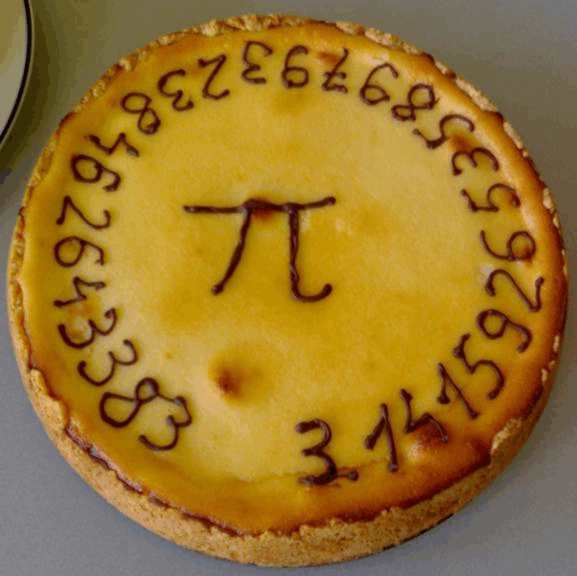| Pi Day 2020 - A Meditation On Numbers |
| Written by Mike James | |||
| Saturday, 14 March 2020 | |||
|
So many Pi days, so many digits - and yet it is still mysterious and fascinating. I give you some deep thoughts on the irrational transcendental. Our number system is much stranger than non-mathematicians believe it to be. Numbers, what could be more known and better understood? One number just follows another... but of course they don't. The counting numbers, the integers do follow on in this way - there is always a next integer. When you move on to fractions or rational numbers this isn't the case - what is the next rational number after 1/2? This is the mystery of the continuum and it gets more mysterious. Between the rational numbers there are numbers that cannot be expressed as a ratio of integers, i.e. they are not rational, they are irrational. The best known irrational number is the square root of two and it can be proved irrational using elementary methods based on arguments about even and odd. If an irrational number cannot be written down as the ratio of two integers then how are we to write it down? This is a problem that took a long time to solve. The simplest expression of the solution is to say that an irrational number needs an infinite number of digits to capture its value. The decimal representation of the square root of two just goes on and on. It never repeats itself because if it did you can prove that it would be rational and it isn't. If it takes an infinite sequence of digits to specify an irrational number in what sense have we written it down? After all we could never stop writing! The way to look at it is that an irrational number can be written down to any precision you care to specify. If 10 digits isn't accurate enough then you can use 11 or 12 or... This is a pragmatic, and very unsatisfactory answer, but it is all we have. The best we can do is to assign the number a finite symbol like √2 and write this finite representation into expressions. This seems just as useless, until you realize that you can make use of the defining properties of the irrational to simplify the expression. You hope that the irrationals vanish - for example, whenever you see √22 you can replace the symbol by 2. At the end of the day you are probably going to have one or two irrationals left in the expression and at this point you have no choice but to go back to the finite approximation. Irrationals like the square root of two are "nice" in that they satisfy algebraic equations. This means they have nice properties like the square root of two. We can write finite algorithms for them that produce finite approximations. In other words, there are algorithms that will generate a decimal expansion to any accuracy. The big shock is that most irrationals aren't like the square root of two - they do not satisfy finite algebraic equation, they are non-algebraic or transcendental. At last we reach today's topic - Pi. This is the best known irrational transcendental number. It is also the "nicest" of the transcendentals in that it has lots of properties and lots of very easy finite algorithms that produce finite approximations. It is a number very much embedded in the regularities that are make math possible, yet as a quantity it has to be irregular and impossible to write down except as an infinite non-repeating sequence of digits. Most of the transcendentals aren't like Pi - they don't have algorithms that generate them and they don't have nice finite symbols to represent them. They are numbers with insufficient regularities to be used in arithmetic and wider mathematics. We know that these numbers exist because of a counting argument - there are more of them than there are programs. These are the numbers we really cannot know. Being knowable is what makes Pi so exceptional. For more on Pi and Pi Day see the related articles listed below.
More InformationRelated ArticlesPi Day 2020 - A Meditation On Numbers Google Smashes Pi Record For Pi Day It's Pi Day 2018 And Google Gets In On It With A Doodle The Life Of Pi - Yes It's Pi Day Celebrate Pi Day It Contains All Human Knowledge 60 trillionth binary digit of pi-squared calculated Yahoo! Gets to the 2 Quadrillionth bit of Pi - it's zero The Programmer's Guide To The Transfinite To be informed about new articles on I Programmer, sign up for our weekly newsletter, subscribe to the RSS feed and follow us on Twitter, Facebook or Linkedin.
<ASIN:B081YS81L7>
|
|||
| Last Updated ( Sunday, 14 March 2021 ) |

